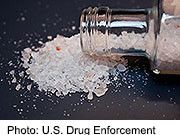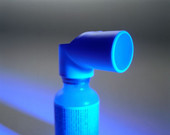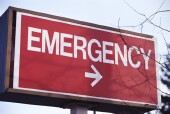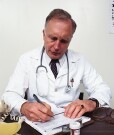Medicare Spending Down in Year One of Pioneer ACO
Total adjusted per-beneficiary spending down in ACO group versus control group
Synthetic Drug ‘Flakka’ Causes Hallucinations, Fits of Rage
Use of chemical-cousin to 'bath salts' appears to be on the rise, experts say
Survey Looks at Patient Attitudes Regarding Informed Consent
Most respondents want to be asked for permission to participate in studies assessing medical practice
AMA Announces End of Sustainable Growth Rate Formula
Legislation includes provisions such as simplification of reporting programs, incentive payments
Placebo Response May Depend on Individual DNA
But more questions than answers exist at this point
Security Breaches of Health Records Up Over Past Decade
Researchers call for enhanced security as more patient information is stored online
NSAID-Exacerbated Respiratory Disease Prevalent With Asthma
Prevalence about 9 percent; NERD linked to significant increases in asthma morbidity
Improvement Seen in the Pediatric Readiness of ERs
Median weighted pediatric readiness score 68.9, with increase by pediatric patient volume
Many Doctors Haven’t Started Dealing With ICD-10 Revision
Tips to ease transition include contacting vendors and health plans, improving documentation
Medical Debt Burden Higher in Texas, Florida
California and New York fully expanded Medicaid coverage under ACA, but Texas and Florida did not



















